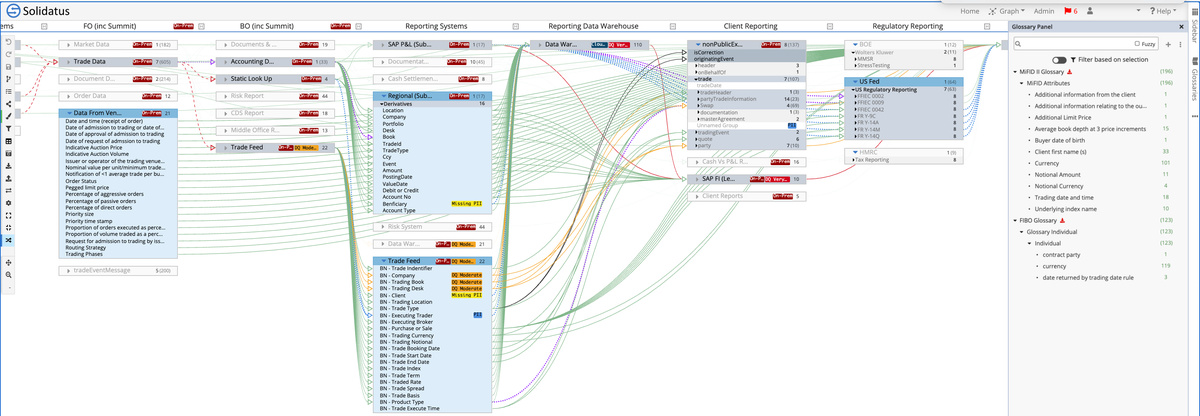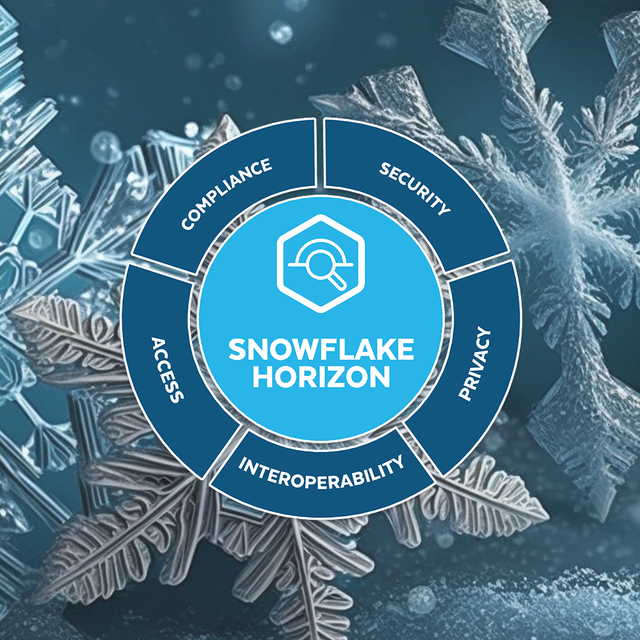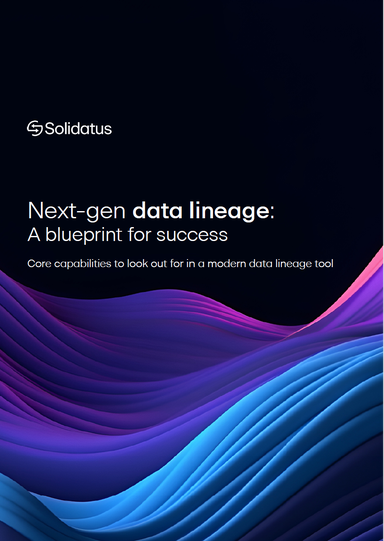What is a Data Catalog?

Catalog your data like never before
Quickly discover, document, analyze and share your data with a modern, fully integrated, feature-rich, machine learning assisted catalog.
Data catalog features
Solidatus enables the creation, management and socialization of:
- Business glossaries
- Technical data dictionaries
- Asset inventories
- Policies and standards
- Other taxonomies
Seamlessly linking each of these reference documents with data lineage models through data cataloging tools creates a comprehensive end-to-end map of all held data, its interaction with policy, people, and process.
The organizational impacts of utilizing data cataloging in conjunction with data lineage are significantly amplified compared to using them in isolation. While catalogs provide the “what is,” lineage offers the “where, who, and why” – the context that adds meaning to metadata.
Unlocking Insights with Advanced Data Catalog Tools
By leveraging Solidatus’ user-friendly and flexible UI/UX, along with our advanced temporal/bi-temporal, versioned, and audited property graph technology, organizations gain enhanced power and control at a whole new level.
Safeguard Data
Data catalog features empower organizations to categorize their data more effectively, fostering a shared understanding across the organization. Robust data governance relies on comprehensive insights provided by data catalog features.


Reduce cost
Leveraging catalog data for collaborative knowledge-sharing, organizations break down silos to gain deeper insights into their data ecosystem. This fosters cross-selling opportunities, identifies redundancies, streamlines processes, and reduces costs effectively.
Mitigate risk
Systematic identification of poor-quality data reduces business risk by highlighting potential issues. Cataloged and visualized data allows organizations to future-proof by preventing crises, rather than managing them.


Improve transparency
Organizations can enrich their data attributes with metadata management and property settings to increase data understanding and insight to help drive their business intelligence.
Regulate change
Governed and accurate data catalogs support organizations in their efforts to reduce the burden of regulations by providing operational transparency, reducing risk and cost.


Automate Data Catalog Process for Machine Learning
Solidatus’ exceptional workflow-controlled crowdsourcing, machine learning, and automated importing capabilities enable organizations to swiftly and efficiently gather and model their organizational data. This streamlined approach empowers seamless automation of the data catalog process, providing enhanced support for machine learning initiatives.

Why you'll love the Solidatus data catalog:
Simple to use
The intuitive and simple web interface is easy to use and requires little or no training. Who reads the manual anyway?
Easy access
Solidatus is a browser-based application and can be up and running in either public or private cloud or on premise in minutes.
Rapidly categorize
Import and export data between Solidatus and other 3rd party systems using the data connectors and APIs.
Identify missing data
Utilize machine learning and rules-based approach to easily identify where additional categorizing is required.
Accelerate discovery
Automate to accelerate discovery, collaborate with Subject Matter Experts (SMEs) to fill in the missing details.
Create and share views
Easily share with management and colleagues for immediate feedback and approval.
















